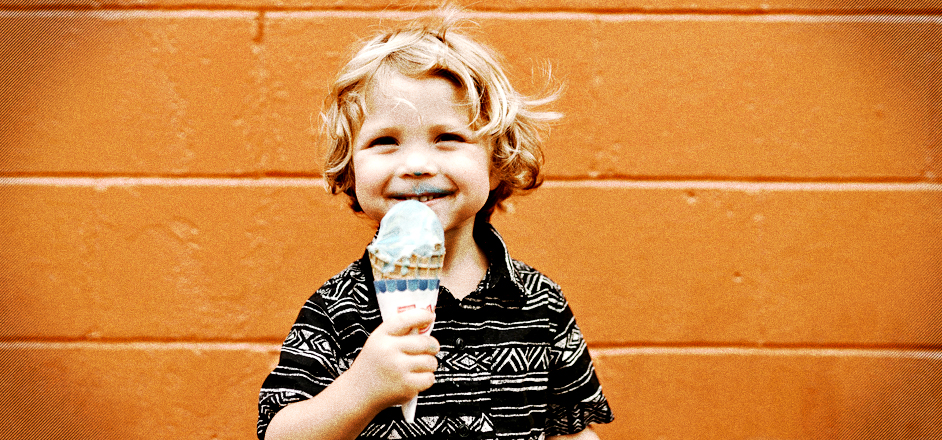Most approach adulthood with enthusiastic strides and grand ideas. But with a couple of steps in, it’s easy to start thinking you’ve taken a wrong turn somewhere. The place you’ve walked into is suddenly very different to the one you’ve been reading about in the adulting brochure.
In fact, the world appears to downright suck, even when it doesn’t. See, age comes with all kinds of tricks that damage perception of the world at large. Life is as bright as it’s ever been (even more so since the time you were born), but growing up has sprayed lines of dark gray tint on your shiny, rose-colored glasses.
“Young adults have always been reactive to the troubles of society and people generally consider their time to be the most problematic,” Robert Firestone PhD tell us. In his article "Why People Fear Growing Up and Functioning as Adults" for Psychology Today, he identifies existential issues and death anxiety as some of the hardest issues for young adults to come to terms with.
“The media accentuates the troublesome issues of the time and there is constant bombardment of unfortunate events that contribute to a pessimistic outlook,” he adds via email. “Presently, issues such as global warming, the nuclear threat, and the tensions in the near East exasperate the issue.” It’s not you, it’s them, he says. “The tendency is to react with cynicism and despair and to develop a more defended lifestyle.”
This is exactly what Mathew Koening, a 23-year-old from Glasgow, says he's going through right now.
“It feels like almost all of a sudden, I started wondering about different things I never even gave any thought before,” he explains. “When I’m in my parents’ place and they’re watching the news, it’s all deaths, crimes and tragedies. I don’t remember what the news was like before, I was always on the computer or doing other stuff.”

It’s not as if those deaths, crimes and tragedies didn’t exist before Koening was born. In fact, in the time he's been alive, they have all been happening at a much lower rate, both in the U.S and around the world. Yet news stations, and social media platforms relying on engagement, are eager to prioritize bad news over good for the same reason they always have — “If it bleeds, it leads.” It’s a proven formula, based on people’s psychological tendency to notice bad over good.
When we’re young, bad news is nothing but background noise to the skate sessions and friendly hangouts; no more important than our moms yapping about chores and homework. As we grow older, that carefree bubble starts to thin out, giving a chance for more and more negativity to get in.
But of course, some global issues feel more imminent than ever before.
“All the talk about global warming and how it’s getting worse and worse is getting a bit scary,” Koening admits. “After hearing a few stats [about global warming] it can be hard to just be relaxed and enjoy anything completely.”
It’s not to say Koening and people like him should just go and ignore important things like they did when they were seven years old. But a little perspective is something everyone can benefit by so the feeling of dread doesn’t follow them around like a terrible ex-girlfriend.
Because things like global warming didn’t happen overnight (some research suggests it started as early as the mid-1800s, though most of it has come from human activity post-1975). And, really, it’s not even your fault; big oil and energy companies shoulder most of the blame. According to one exhaustive study on it by Richard Heede, "two-thirds of the carbon released into the troposphere by human activity since the industrial revolution could be traced back to 90 companies and government-run industries."
And gun control? Forget about it. Violence as a whole is way down by comparison to what it used to be (suicides notwithstanding), even though we have hundreds of millions more people, and guns, on the planet. You wouldn’t know that looking at left-leaning social feeds from around the world this past week though.
Surely, the world is filled with enough to scare and revolt near anyone. But saying it just plain sucks, that it’s a sinking ship dragging down all beauty, humanity and magic with it, would suggest you’re looking at it from a narrow perspective and completely without context.
Minorities still have to fear overzealous judicial systems, women aren’t safe or equal anywhere, kids are dying by gun violence when they should be studying for tests, and the blatant corruption of governments around the world continues to persist — of course, there are scary things out there and things do still suck. But looking at these issues within historical context, you’ll see we’re a lot better off than we were even a decade ago.
That’s something to be hopeful about, even in hopeless-feeling times.




Leave a Reply